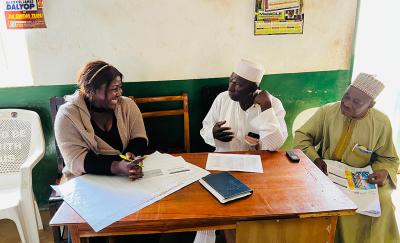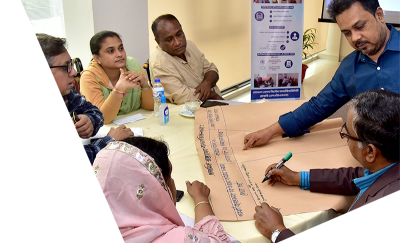More than Just a Moment in Time: Embracing Reconciliation



We’re nearly a month on from celebrating National NAIDOC Week (3 to 10 July 2022), with its theme of “Get up! Stand up! Show up!” which was a call for systemic change and to keep rallying around for mob, for Elders, and for communities, and to support and secure institutional, structural, collaborative, and cooperative reforms. Now we’re on to the annual commemoration of the International Day of the World’s Indigenous Peoples which, this year, shines a light on “The Role of Indigenous Women in the Preservation and Transmission of Traditional Knowledge”. As we reflect on this theme, on NAIDOC week, on National Reconciliation Week (27 May to 3 June 2022), and on other key dates for the Aboriginal and Torres Strait Islanders in Australia and Indigenous peoples around the globe, we are reminded that these celebrations and key dates are not just single points in time when we should momentarily support and act: they are a call for us to continue to act—get up, stand up, and show up—to be brave and make change all the time.
Building (on) Empathy
The words of Shelley Reys AO in the forward of the 2021 State of Reconciliation in Australia report “Moving from Safe to Brave” can provide us all with inspiration on how we can move forward: “Brave is when we listen, challenge, and learn about ourselves and others. Brave is saying that you’re ready to delve into the very things that hold you together; your bias, beliefs and values. Brave is when you refuse to accept inertia.”
Shelley goes on to note that the global health pandemic has brought immeasurable hardship, loss, and anxiety to many, yet it also has given us some unexpected insights. Through isolation, job loss, and instability, many of us have a better understanding of the powerlessness, lack of financial security and food security, social exclusion and disengagement, and poor mental health, that many of our Aboriginal and Torres Strait Islander peoples face daily.


“We can choose now to harness this empathy and use it as a tool to discredit our personal bias and reject discrimination, with relentless determination,” she writes. “The measure of our success as individuals will be the extent to which we have empowered ourselves and our sphere of influence—with the knowledge and confidence to face our biases and then to create change. As a nation, the measure of our success must be the position that Indigenous peoples find themselves in. That is, a safe, equitable, equal and fair environment filled with prospect and hope.”
How will we know when we’ve reached that goal? There are five dimensions through which we can measure reconciliation: unity, race relations, equality and equity, institutional integrity and historical acceptance. Let’s make this the moment we begin spending every moment pursuing and promoting reconciliation.
Learn more about Abt’s Reconciliation Action Plan.
Read More

Pathways to UHC: Nigeria’s State and Local Approaches to Financing Integrated HIV Services and Primary Health Care
Nigeria’s state and local government-driven approaches to integrated primary health care are transforming financial protection and access for vulnerable populations, setting a replicable model for sustainable universal health coverage.

The Next Phase of Financing for Resilience
In our webinar, explore innovative financial strategies to enhance climate resilience and scale finance for sustainable development in emerging markets.

Building Climate Resilience Through Private Sector Partnerships
The Partnership for Climate Action, led by USAID CACCI, helps the private sector contribute to climate resilience through investment and innovation.

Health Systems Research (HSR) 2024
Abt Global is exhibiting and presenting at Health Systems Research (HSR) in Nagasaki, Japan in November 2024.